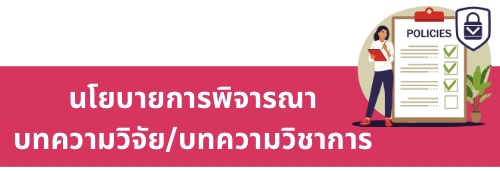การพัฒนาโปรแกรมการสอนแนะต่อพฤติกรรมการดูแลตนเองของผู้ป่วยโรคไตเรื้อรัง
คำสำคัญ:
โปรแกรมการสอนแนะ, ผู้ป่วยโรคไตเรื้อรัง, พฤติกรรมการดูแลตนเองบทคัดย่อ
การวิจัยและพัฒนาครั้งนี้มีวัตถุประสงค์เพื่อพัฒนาและศึกษาผลของโปรแกรมการสอนแนะต่อพฤติกรรมการดูแลตนเองของผู้ป่วยโรคไตเรื้อรัง ตัวอย่างคือ ผู้ป่วยโรคไตเรื้อรังระยะที่ 3 และ 4 ในคลินิกชะลอไตเสื่อม โรงพยาบาลนครนายก จำนวน 60 คน แบ่งเป็นกลุ่มควบคุมได้รับการพยาบาลตามปกติ 30 คน และกลุ่มทดลองได้รับโปรแกรมการสอนแนะ 30 คน เก็บข้อมูลระหว่างเดือนสิงหาคม - ตุลาคม พ.ศ. 2565 โดยใช้แบบสอบถามพฤติกรรมการดูแลตนเอง มีค่าดัชนีความตรงตามเนื้อหาจากผู้เชี่ยวชาญ 3 ท่าน เท่ากับ .90 และค่าสัมประสิทธิ์แอลฟาของครอนบาคเท่ากับ .86 วิเคราะห์ข้อมูลด้วยสถิติบรรยายและการทดสอบความแตกต่างของค่าเฉลี่ยด้วยการทดสอบที
ผลการศึกษาพบว่า 1) โปรแกรมการสอนแนะที่ส่งเสริมพฤติกรรมการดูแลตนเองของผู้ป่วยโรคไตเรื้อรัง ประกอบด้วย การให้ความรู้เรื่องโรคไตเรื้อรัง การสาธิตการทำงานของไตด้วยนวัตกรรมกระชอนสอนไต การชมวิดีทัศน์เรื่องวิธีการดูแลตนเองเพื่อป้องกันไตเสื่อม และการติดตามทางโทรศัพท์ มีค่าดัชนีความตรงเนื้อหา เท่ากับ .90 ซึ่งอยู่ในเกณฑ์สูง อีกทั้งมีความเหมาะสมและความเป็นไปได้ในการนำไปใช้ในการส่งเสริมพฤติกรรมการดูแลตนเองได้ 2) กลุ่มทดลองที่ได้รับโปรแกรมการสอนแนะมีพฤติกรรมการดูแลตนเองสูงกว่าก่อนได้รับโปรแกรมอย่างมีนัยสำคัญทางสถิติที่ระดับ .05 (ก่อนทดลอง: M = 68.03, SD = 4.64; หลังทดลอง: M = 72.93, SD = 7.73; t = 3.06, p = .005) และมีพฤติกรรมการดูแลตนเองสูงกว่ากลุ่มควบคุมที่ได้รับการพยาบาลตามปกติอย่างมีนัยสำคัญทางสถิติที่ระดับ .05 (กลุ่มทดลอง: M = 72.93, SD = 7.73; กลุ่มควบคุม: M = 68.80, SD = 4.35; t = 2.66, p = .013)
Downloads
เอกสารอ้างอิง
Bikbov, B., Purcell, A., Levey, S., Smith, M., Abdoli, A., Abebe, M., . . . Owolabi, O. (2020). Global, regional, and national burden of chronic kidney disease, 1990–2017: A systematic analysis for the Global Burden of Disease Study 2017. The Lancet, 395(10225), 709-733.
Carney, F. (2020). The impact of chronic kidney disease on global health. Nature Reviews Nephrology, 16(5), 251.
Chaiyasung, P., Jukchai, P., Sridet, R., & Nanudorn, A. (2021). The development of self-care promotion program on behavior self-care of chronic disease patients with chronic kidney disease at home. Journal of Nursing and Education, 13(1), 27-42.
Cohen, J. (1988). Statistical power analysis for the behavioral sciences (2nd ed.). New Jersey, NJ: Lawrence Erlbaum.
DeJesus, S., Clark, M., Rutten, F., Jacobson, M., Croghan, T., Wilson, M., . . . Sauver, S. (2018). Impact of a 12-week wellness coaching on self-care behaviors among primary care adult patients with prediabetes. Preventive Medicine Reports, 10, 100-105.
Girvin, J. (1999). Coaching for improving job performance and satisfaction. Nursing Times, 95(50), 55-57.
Hettiarachchi, R., & Abeysena, C. (2018). Association of poor social support and financial insecurity with psychological distress of chronic kidney disease patients attending national nephrology unit in Sri Lanka. International Journal of Nephrology, 5678781.
Kim, K. M., Oh, H. J., Choi, H. Y., Lee, H., & Ryu, D. R. (2019). Impact of chronic kidney disease on mortality: A nationwide cohort study. Kidney Research and Clinical Practice, 38(3), 382.
Mbabazi, P. T., Chironda, G., Gapira, E. B., Claude, S. J., Ndahayo, D., & Rajeswaran, L. (2022). Awareness and self-care practice regarding prevention of chronic kidney disease among hypertensive patients at the University Teaching Hospital of Butare, Rwanda. International Journal of Africa Nursing Sciences, 16, 100390.
Nastasi, K., & Schensul, L. (2005). Contributions of qualitative research to the validity of intervention research. Journal of School Psychology, 43(3), 177-195.
Orem, E. (2001). Nursing: Concepts of practice (6th ed.). St. Louis: Mosby.
Pakaya, E., Syam, Y., & Syahrul, S. (2021). Correlation of self-efficacy and self-care of patients undergoing hemodialysis with their quality of life. Enfermería Clínica, 31, S797-S801.
Poorgholami, F., Mansoori, P., Montaseri, Z., & Najafi, K. (2016). Effect of self-care education with and without telephone follow-up on the level of hope in renal dialysis patients: A single-blind randomized controlled clinical trial. International Journal of Community-Based Nursing and Midwifery, 4(3), 256–264.
Rainey, H., Hussain, S., & Thomas, N. (2020). Innovative education for people with chronic kidney disease: an evaluation study. Journal of Renal Care, 46(4), 197-205.
Ramezani, T., Sharifirad, G., Rajati, F., Rajati, M., & Mohebi, S. (2019). Effect of educational intervention on promoting self-care in hemodialysis patients: Applying the self-efficacy theory. Journal of Education and Health Promotion, 8, 1-8.
Riegel, B., Westland, H., Iovino, P., Barelds, I., Slot, J. B., Stawnychy, M. A., . . . Jaarsma, T. (2021). Characteristics of self-care interventions for patients with a chronic condition: A scoping review. International Journal of Nursing Studies, 116, 103713.
Singprasert, R., Kanogsunthornrat, N., & Chailimpamontri, W. (2018). Effect of behavior modification program led by advanced practice nurse on clinical outcomes in patients with pre-dialysis chronic kidney disease. Thai Journal of Nursing and Midwifery Practice, 5(1), 57-74.
Srikongpan, K., & Sarapan, P. (2018). Effects of case management in chronic kidney disease patients on volume overload, chronic kidney disease clinic, Kumphawapi hospital. Udonthani Hospital Medical Journal, 26(2), 166-177.
Tangsrikertikul, P. (2020). Eight million Thai people addicted to consume high-sodium foods and suffering with chronic kidney disease. Dailynews Online. Retrieved from https://www.thaihealth.or.th/Content/51283
Tsai, C., Hsiao, N., Kuo, C., Wang, L., Chen, H., Kung, F., . . . Chiu, W. (2021). Mobile health, disease knowledge, and self-care behavior in chronic kidney disease: A prospective cohort study. Journal of Personalized Medicine, 11(845), 1-12.
Unaphak, P., & Rattanamanee, K. (2015). The correlation factors of self-care behaviors to prevent complications among patients with chronic kidney disease at Somdetphraphutthalertla hospital in Samutsongkhram province. The Public Health Journal of Burapha University, 10(2), 44-54.
Wong, K., Velasquez, A., Powe, R., & Tuot, S. (2018). Association between health literacy and self-care behaviors among patients with chronic kidney disease. BMC Nephrology, 19(1), 1-8.
Yodchai, K. (2019). Patients with chronic kidney disease: Nursing care and symptom management. Songkhla: P.C. Prospect.

ดาวน์โหลด
เผยแพร่แล้ว
รูปแบบการอ้างอิง
ฉบับ
ประเภทบทความ
สัญญาอนุญาต
ลิขสิทธิ์ (c) 2022 วารสารพยาบาลตำรวจ

อนุญาตภายใต้เงื่อนไข Creative Commons Attribution-NonCommercial-NoDerivatives 4.0 International License.
ผลงานที่ได้ตีพิมพ์แล้วจะเป็นลิขสิทธิ์ของวารสารพยาบาลตำรวจ














